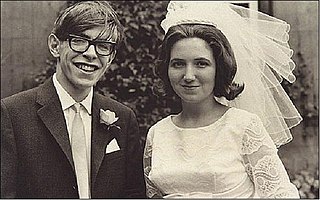A Quote by Thomas Paine
The Almighty Lecturer, by displaying the principles of science in the structure of the universe, has invited man to study and to imitation. It is as if He has said to the inhabitants of this globe that we call ours, "I have made an earth for man to dwell upon, and I have rendered the starry heavens visible, to teach him science and the arts. He can now provide for his own comfort, and learn from my munificence to all to be kind to each other.
Related Quotes
I think men of science as well as other men need to learn from Christ, and I think Christians whose minds are scientific are bound to study science that their view of the glory of God may be as extensive as their being is capable. But I think that the results which each man arrives at in his attempts to harmonize his science with his Christianity ought not to be regarded as having any significance except to the man himself, and to him only for a time, and should not receive the stamp of a society.
The arts put man at the center of the universe, whether he belongs there or not. Military science, on the other hand, treats man as garbage - and his children, and his cities, too. Military science is probably right about the contemptibility of man in the vastness of the universe. Still - I deny that contemptibility, and I beg you to deny it, through the creation of appreciation of art.
Most people don't put things together. Geologists study the surface of the earth and geological phenomena. Meteorogists study the weather. That isn't science. Science is the study of all things that affect human beings. They have to be together! A meteorologist has difficulty talking with a sociologist, because they don't understand each other. You can't teach sciences in 'bits'; you have to bring it all together. Science is a way of thinking - a way at arriving at conclusions without your own opinion in it.
It must be for truth's sake, and not for the sake of its usefulness to humanity, that the scientific man studies Nature. The application of science to the useful arts requires other abilities, other qualities, other tools than his; and therefore I say that the man of science who follows his studies into their practical application is false to his calling. The practical man stands ever ready to take up the work where the scientific man leaves it, and adapt it to the material wants and uses of daily life.
The Christian religion, outwardly and even in intention humble, does, without meaning it, teach man to regard himself as the most important of all created things. Man surveys the starry heavens and hears with his ears of the plurality of worlds; yet his religion bids him believe that his alone out of these innumerable spheres is the object of his master's love and sacrifice.
The attainment of knowledge is the high and exclusive attribute of man, among the numberless myriads of animated beings, inhabitants of the terrestrial globe. On him alone is bestowed, by the bounty of the Creator of the universe, the power and the capacity of acquiring knowledge. Knowledge is the attribute of his nature which at once enables him to improve his condition upon earth, and to prepare him for the enjoyment of a happier existence hereafter.
Man is made of opinions,—of truth and error; and his life is a warfare like all other lives before him.... Man goes on developing error upon error till he is buried in his own belief.... It is the office of wisdom to explain the phenomena in man called disease, to show how it is made, and how it can be unmade. This is as much a science as it is to know how to decompose a piece of metal.
If it were possible to transfer the methods of physical or of biological science directly to the study of man, the transfer would long ago have been made ... We have failed not for lack of hypotheses which equate man with the rest of the universe, but for lack of a hypothesis (short of animism) which provides for the peculiar divergence of man ... Let me now state my belief that the peculiar factor in man which forbids our explaining his actions upon the ordinary plane of biology is a highly specialized and unstable biological complex, and that this factor is none other than language.
The motive of science was the extension of man, on all sides, into Nature, till his hands should touch the stars, his eyes see through the earth, his ears understand the language of beast and bird, and the sense of the wind; and, through his sympathy, heaven and earth should talk with him. But that is not our science.
The gas man came one day, and he said, 'What does your husband do?' so I told him, and he said, 'What's the use of that?' He had a point, but on the other hand, I firmly believed in Stephen and his brilliance. I encouraged him to popularise his science just because the gas man had been so insulting.
He is not a true man of science who does not bring some sympathy to his studies, and expect to learn something by behavior as well as by application. It is childish to rest in the discovery of mere coincidences, or of partial and extraneous laws. The study of geometry is a petty and idle exercise of the mind, if it is applied to no larger system than the starry one. Mathematics should be mixed not only with physics but with ethics; that is mixed mathematics. The fact which interests us most is the life of the naturalist. The purest science is still biographical.
The true man of science will know nature better by his finer organization; he will smell, taste, see, hear, feel, better than other men. His will be a deeper and finer experience. We do not learn by inference and deduction and the application of mathematics to philosophy, but by direct intercourse and sympathy. It is with science as with ethics,--we cannot know truth by contrivance and method; the Baconian is as false as any other, and with all the helps of machinery and the arts, the most scientific will still be the healthiest and friendliest man, and possess a more perfect Indian wisdom.
Armed with all the powers, enjoying all the wealth they owe to science, our societies are still trying to practice and to teach systems of values already destroyed at the roots by that very science. Man knows at last that he is alone in the indifferent immensity of the universe, whence which he has emerged by chance. His duty, like his fate, is written nowhere.
Many people correctly make the point that our only hope is to turn to God. For example, Charles Lindbergh, who said that in his young manhood he thought "science was more important than either man or God," and that "without a highly developed science modern man lacks the power to survive," . . . went to Germany after the war to see what Allied bombing had done to the Germans, who had been leaders in science. There, he says, "I learned that if his civilization is to continue, modern man must direct the material power of his science by the spiritual truths of his God."
Heidi Cullen had said that all of these local and cable weather forecasters who have been certified by the AMS, the American Meteorological Society, should be decertified if they refuse to accept the proven science of man-made global warming. There are numerous credible scientists, who have not been convinced that this is anything other than sunspot activity or normal cycles that the earth has gone through for billions and billions and billions and billions of years. Science can't prove man-made global warming, they simply can't, so they come up with this notion of consensus.




































